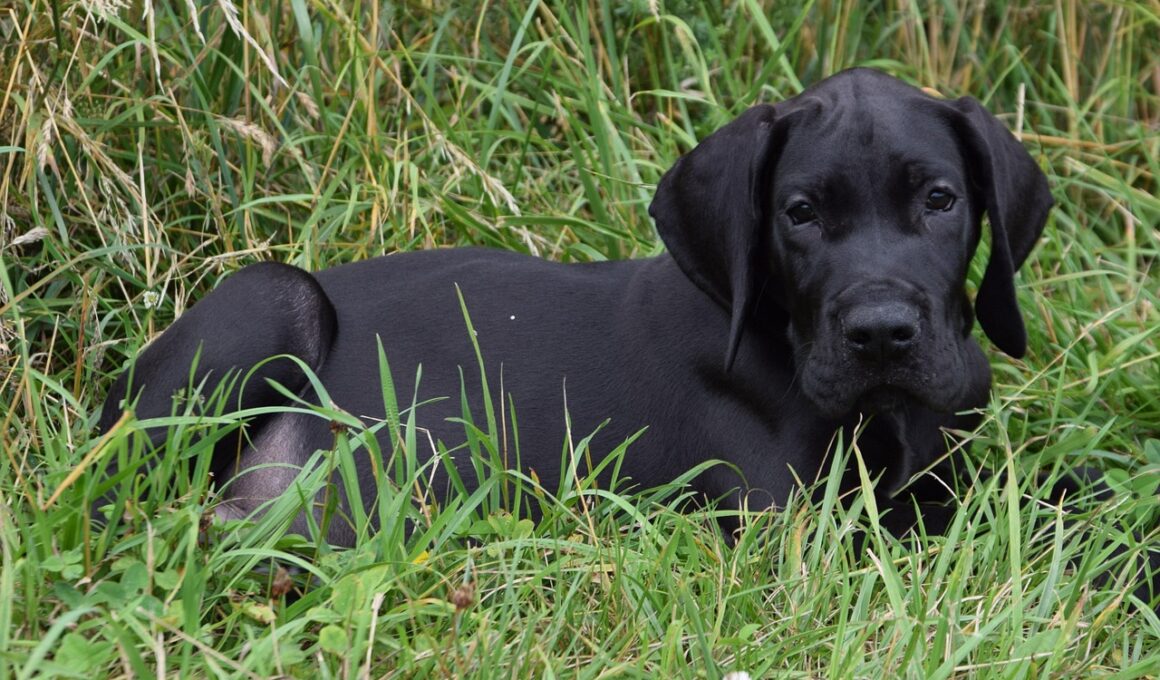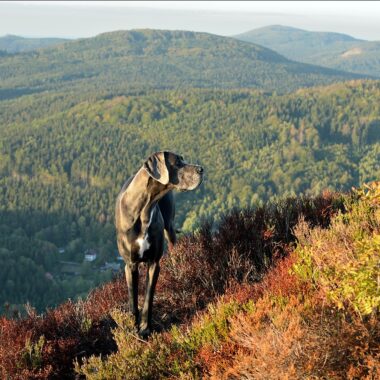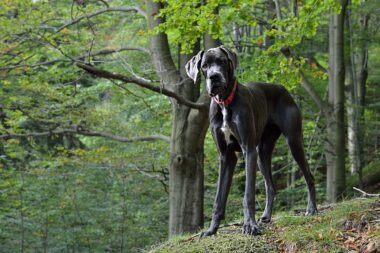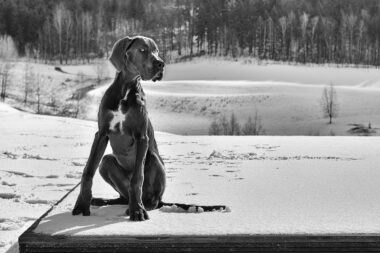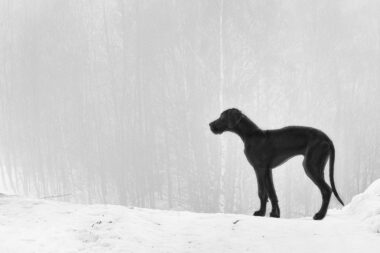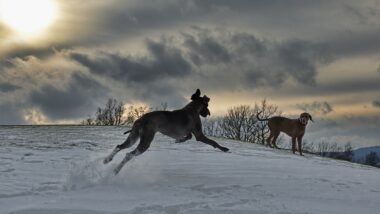Great Dane Puppies: What to Expect and How to Prepare
Great Danes are known as gentle giants, making them a popular choice for families. If you’re bringing home a Great Dane puppy, it’s essential to understand what to expect from this breed. First, size matters! These dogs grow quickly and can reach up to 175 pounds or more. Large breeds like Great Danes require specific care, especially regarding nutrition. It’s crucial to choose high-quality puppy food tailored for large breeds to support their growth. Moreover, training should begin early; these puppies are intelligent but can be stubborn. Socialization starts in puppyhood and includes exposure to various environments, people, and pets. Implementing consistency in training sessions aids in fostering good behavior. Remember, Great Danes are prone to certain health issues, so regular vet check-ups are vital. Keep in mind, they can be prone to bloat, whose management requires specific feeding practices. Preparing your home for a Great Dane means ensuring adequate space for movement and play. Finally, be ready for plenty of love and companionship, as Great Danes thrive on human interaction. They are incredibly devoted and make wonderful pets, offering endless joy and affection.
Creating a Safe Space for Your Great Dane
Before bringing home a Great Dane puppy, ensure you create a safe and welcoming environment. Start by designating a specific area in your home for your new puppy. This space should be free from hazards, such as small objects and toxic plants, that could harm your puppy. Adding a comfy bed and toys in their designated area helps them feel secure in their new home. Make sure the area is spacious enough for their large size, allowing them to play and stretch comfortably. It’s also important to puppy-proof your home, securing items that could be chewed on like electrical cords or furniture legs. Establishing boundaries early on will provide the foundation for positive behavior as they grow up. When you introduce your Great Dane puppy to these new spaces, let them explore at their own pace. Supervise their interactions with children and other pets to ensure everyone stays safe. Notably, providing toys that cater to their size helps keep them engaged mentally and physically. Additionally, consider investing in a sturdy leash and collar suitable for their growing size to ensure safe outings, helping you build a trusting bond.
Training is an essential part of raising a Great Dane puppy. Starting early with basic commands, like sit, stay, and come, will help establish good habits. Consistent, positive reinforcement is key to encouraging desired behaviors in your puppy. Training sessions should be kept short and fun to maintain their attention. Incorporating playtime with training enhances the learning experience. Remember, Great Danes are social dogs who thrive on human interaction. Therefore, use treats, praise, and affection as rewards during training. Socialization is equally crucial; expose them to various situations and different environments. Gradual introductions to various people and other pets create a well-rounded temperament. Always supervise their interactions and gently correct any unwanted behaviors as they occur. As they grow, continue to reinforce existing commands and introduce new challenges to stimulate their minds. Consider enrolling in puppy classes for structured learning and socialization with other dogs. These classes also offer guidance for owners. Stay dedicated to your training efforts, as it fosters a respectful bond between you and your Great Dane. A well-trained Great Dane will grow to be a wonderful family companion.
Nutrition and Feeding Guidelines
Feeding your Great Dane puppy the right nutrition is crucial for their healthy growth and development. Due to their rapid growth, focusing on quality ingredients in their food is important. Consult your veterinarian to choose a high-quality, large-breed puppy food that provides essential nutrients. The food should be rich in protein and fats while low in fillers and artificial additives. Divide their daily food intake into multiple small meals to prevent bloat, a common issue with large breeds. Gradually transition to adult food around 12 to 18 months, ensuring they receive adequate nutrients during their growth phase. Monitor their weight regularly and make adjustments to their diet as needed. Supplements can also be beneficial during growth stages, especially those supporting joint health. Collaborating with your vet helps determine the best diet tailored to your puppy’s needs. Additionally, always provide fresh water for hydration, especially after playtime or exercise. Be cautious with human food, as many items can be harmful. Establish a feeding routine to facilitate healthy eating habits and always supervise feeding times to prevent food theft or competition from other pets.
Socialization is one of the most important aspects of raising a well-rounded Great Dane puppy. Proper socialization begins in the early weeks of puppyhood and should cover various aspects of their environment. Taking your puppy to parks, puppy classes, or on outings helps them acclimate to different sounds, sights, and sensations. Introduce them to people of all ages and sizes, ensuring positive experiences. Avoid overwhelming them with too many stimuli at once; gradual exposure is key for building their confidence. Interaction with other dogs is also essential, reinforcing appropriate play behaviors. Schedule playdates with friendly and well-mannered dogs, promoting healthy social skills. Supervise their interactions, especially during their first experiences, to prevent any negative reactions. Maintaining a calm demeanor during these encounters encourages your puppy to feel secure. Using positive reinforcement when they exhibit good manners will strengthen their understanding of appropriate behavior. Great Danes are naturally gentle but can become fearful if not exposed correctly. By socializing them regularly, you create a balanced and confident adult Great Dane who can easily adjust to various situations, making them a great companion for years to come.
Health Considerations for Great Dane Puppies
Caring for a Great Dane puppy involves being aware of specific health considerations unique to the breed. As large dogs, they face specific health challenges, such as hip dysplasia, bloat, and heart disease. Regular veterinary check-ups play a critical role in preventing and managing these issues. Your vet may recommend a health screening, particularly for hip and heart conditions, as these are common concerns. Regular vaccinations and proper parasite control are also necessary to maintain optimal health. Feeding high-quality puppy food aids in avoiding obesity, an issue that can exacerbate joint problems. Pay attention to their growth rate; rapid weight gain can lead to skeletal issues. It’s advisable to monitor their activity levels and avoid excessive exercise during their early developmental stages. Familiarizing yourself with signs of potential health problems, such as lethargy or loss of appetite, is crucial for early detection. A proper diet combined with responsible breeding practices helps reduce health risks. Understanding these considerations enables you to provide a better quality of life for your Great Dane puppy, ultimately resulting in a happy, healthy companion.
In conclusion, bringing a Great Dane puppy into your home is an enriching and fulfilling experience. Preparing for their arrival means setting up a loving, safe, and healthy environment for them to thrive. Start by creating a designated space, investing in quality nutrition, and establishing a proper training routine early on. Socialization is equally crucial in promoting positive interactions with people and other pets. Regular vet visits help mitigate potential health issues while ensuring vaccinations are up to date. As your Great Dane grows, their size and spirited nature will certainly become a significant part of your family dynamics. Their affectionate and gentle demeanor makes them a perfect fit for families who prioritize companionship. Commit to ongoing training and monitor their health to cultivate a strong bond. Dedicate time for play and engagement to nurture their mental and physical well-being. By following these guidelines, you will prepare yourself for the joys and challenges of raising a Great Dane puppy. Embrace the unique qualities of this breed, and you’ll find that your Great Dane will not only grow into a beloved family member but also bring endless happiness to your home.
Final Tips for New Great Dane Owners
As a new Great Dane owner, consider a few tips to ensure a smooth transition for both you and your puppy. First, patience is essential; training and adjusting to new environments may take time. Create a consistent routine for feeding and potty breaks to establish stable habits. Utilize crates effectively, as they provide a safe space and prevent destructive behaviors when you’re not around. Stay informed about the specific needs of Great Danes. Join online forums or local breed clubs to connect with other owners and share experiences. Consider obtaining pet insurance to help manage unexpected veterinary costs associated with larger breeds. Furthermore, be prepared for grooming, as Great Danes do have a short coat but may shed. Regular brushing reduces shedding and keeps their coat healthy. Most importantly, shower your Great Dane with love and affection to foster trust and loyalty. Build a relationship based on mutual respect, and you’ll find that your Great Dane will become a cherished family member. Enter this rewarding journey with an open heart and mind, enjoying all the moments you will share together.
